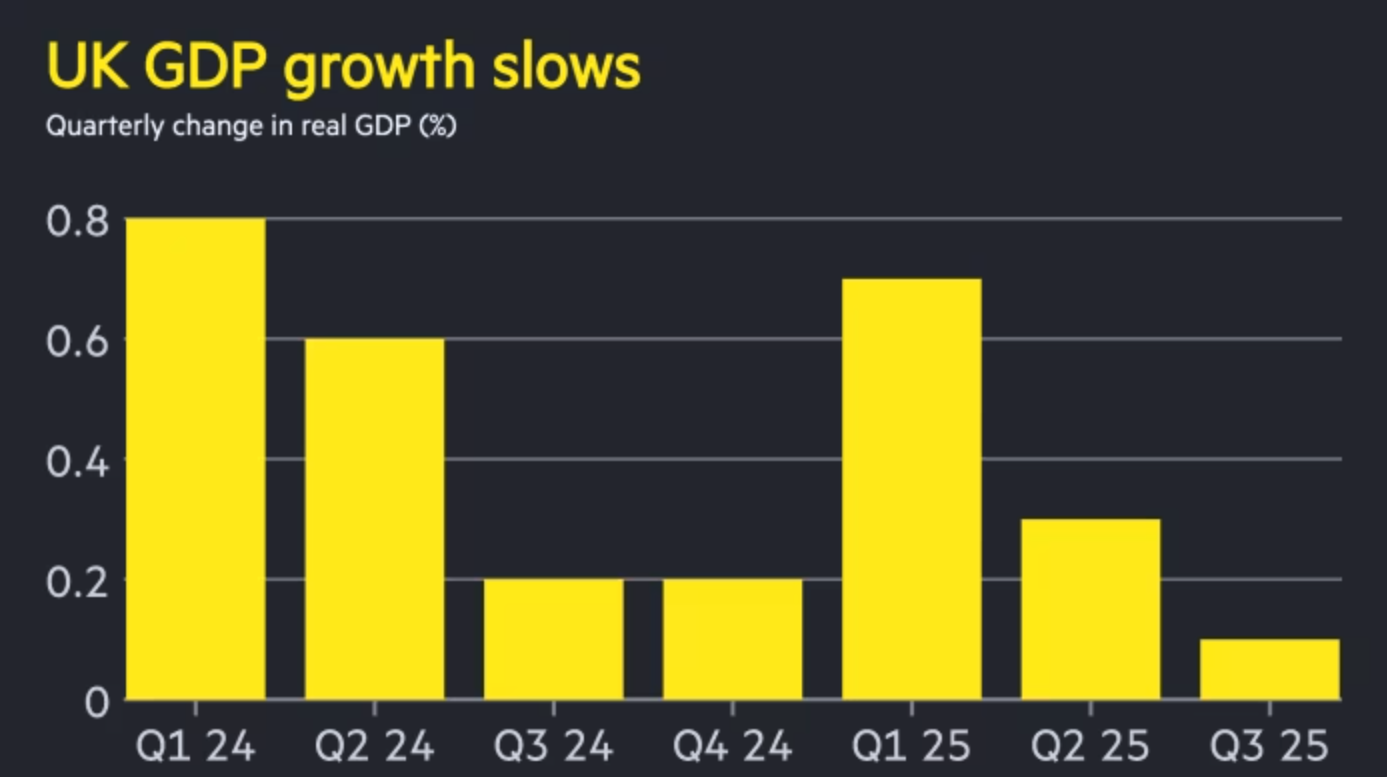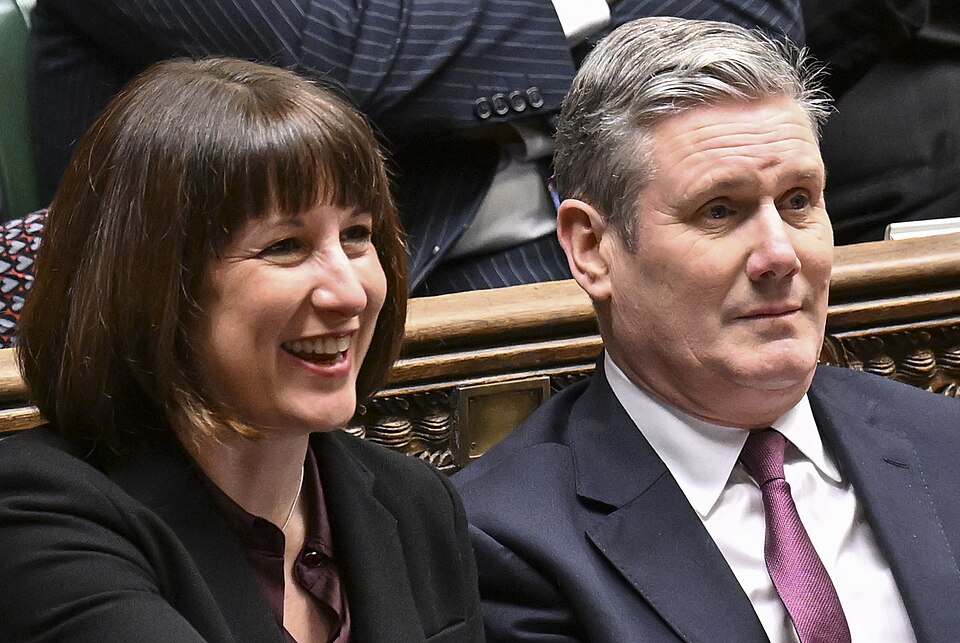9.4
7.721 Reviews

English
EN
This article has been automatically translated from Dutch. Click here to see the orginal article including all links to sources.
It’s time once again to turn our attention to Ursula von der Leyen, who this week presented her so-called “Democracy Shield.” Many view this shield as a threat to our freedoms, while the D66 and VVD groups in the European Parliament argue it doesn’t go far enough. Elon Musk also jumped into the debate and launched an attack on Von der Leyen. Meanwhile, across the Channel, Britain keeps delivering bad economic news. What’s going on?
As we wrote in September, Ursula von der Leyen has been working on a “European Democracy Shield” aimed at combating misinformation and disinformation. This week, the European Commission unveiled the plan, outlining strategies to better handle foreign interference and information manipulation.
Ursula von der Leyen (bron: WEF)
The Commission argues that our democracies are under internal and external pressure, and that authoritarian regimes increasingly see them as a threat — deploying ever more aggressive tactics to weaken them. According to the Commission, these regimes attempt to sow division, create distrust, and threaten free and fair elections.
To counter this, the plan includes the creation of a European Centre for Democratic Resilience: a centralized hub for detecting and responding to disinformation. There will also be an EU-wide network of fact-checkers tasked with determining which information should be considered reliable. The EU additionally plans to provide financial support to “independent” journalists and media outlets. Brussels will also introduce a European citizenship framework, giving it a more direct role in citizenship education in schools.
Von der Leyen presents the plan as a safeguard for democracy, prosperity, freedom, and security — in short, as a defense of everything we hold dear against authoritarian adversaries. Not everyone is convinced. Social media was flooded with criticism from people who fear censorship and point to other EU-backed measures like the digital ID, the CBDC, Chat Control, the EU driver’s licence, and a European intelligence service. Critics worry that the Commission is centralizing more control and creating a filter through which only approved narratives on climate, security, and migration will pass.
Musk vs. Von der Leyen
Elon Musk also joined the debate, sharply criticizing European democracy and Von der Leyen, who increasingly presents herself as Europe’s leader. “If democracy is the foundation of freedom, shouldn’t the position of EU leader be directly elected by the people?” Musk wrote on X. He argued that the “leader of the EU” should be chosen by the bloc’s citizens, not appointed “by a committee.” His post received massive support on his own platform. Musk has long been at odds with the EU over the Digital Services Act, and the Commission has even labeled X as the platform where disinformation is most persistent.
Within the European Parliament, some groups share this view, while others argue Von der Leyen’s proposal does not go far enough. Patriots for Europe — the group the PVV is part of — wrote:
“Brussels’ new ‘Democracy Shield’ is a shield for the Commission and its proxies — not for democracy and not for citizens. By centralizing power and silencing dissent, the EU risks undermining the very freedoms it claims to defend.”
Renew Europe, which includes D66 and VVD, is an outspoken supporter of Von der Leyen’s plan. In fact, the group considers the proposal too weak and is calling for “much more ambitious legislative action.”
They write:
“It is time to turn words into enforceable measures that ensure a coordinated and credible response to growing threats to democracy.”
The group plans to work on strengthening Von der Leyen’s proposal in the coming months.
It’s not only the European mainland grappling with problems. The UK economy unexpectedly contracted by 0.1% in September. Across the entire third quarter, the economy grew by just 0.1%. We previously reported on fleeing London millionaires and billionaires, widening budget deficits, rising interest rates, and British tax hikes that backfired. In recent months, hardly any positive economic news has washed ashore from across the Channel.
UK GDP Growth slows (source: FT)
The contraction wasn’t the only disappointing figure. UK unemployment rose to 5%, and wage growth slowed. It’s the highest unemployment rate in a decade — excluding the pandemic years — and higher than the 4.9% expected by economists.
New data also show that 180,000 jobs have been lost since Chancellor Rachel Reeves announced higher employer taxes in the previous budget. Business confidence was hit hard by her decision to raise payroll taxes by £25 billion.
The figures are a major setback for Reeves, especially because she will likely soon have to announce additional tax hikes to close an estimated £30 billion budget gap. According to the Financial Times, the stalling labour market reflects businesses’ fear of further tax increases, while the government’s plans to expand workers’ rights make hiring even riskier.
Rachel Reeves & Keir Starmer (bron: Wikimedia/UK Parliament)
In response to the weak economic data, Reeves said “more work needs to be done to build an economy that works for working people.” Critics argue that the rising unemployment rate is the result of her poor choices — raising labour taxes while burdening businesses with extra regulations.
Meanwhile, the exodus of entrepreneurs and wealthy Britons continues. (Almost) tech billionaire Herman Narula is the latest prominent figure to announce his departure. He too is moving to Dubai, just like the founder of Revolut, whom we reported on earlier. Narula sees the government’s anti-business stance — which he says drives new firms out of the country — as the primary reason.
There is growing speculation that Reeves plans to introduce a capital gains tax that would apply when a wealthy individual leaves the UK.
“Such an exit tax tells founders not only that their ideas and innovations are not welcome here, but also that they would be wise to leave early — or never come at all,” reads a letter signed by hundreds of entrepreneurs and investors.
The UK already lost 11,300 millionaires last year, and a poll by the Adam Smith Institute shows that 28% of Britons aged 18 to 30 are considering emigration.
Finally, a viewing tip: well-known British podcaster Peter McCormack goes on a lengthy rant about the government’s “economic illiteracy,” singling out Reeves and other policymakers. According to him, they have absolutely no understanding of how money, inflation, the economy, or markets work. We will, of course, continue to follow Reeves’ antics for you.
